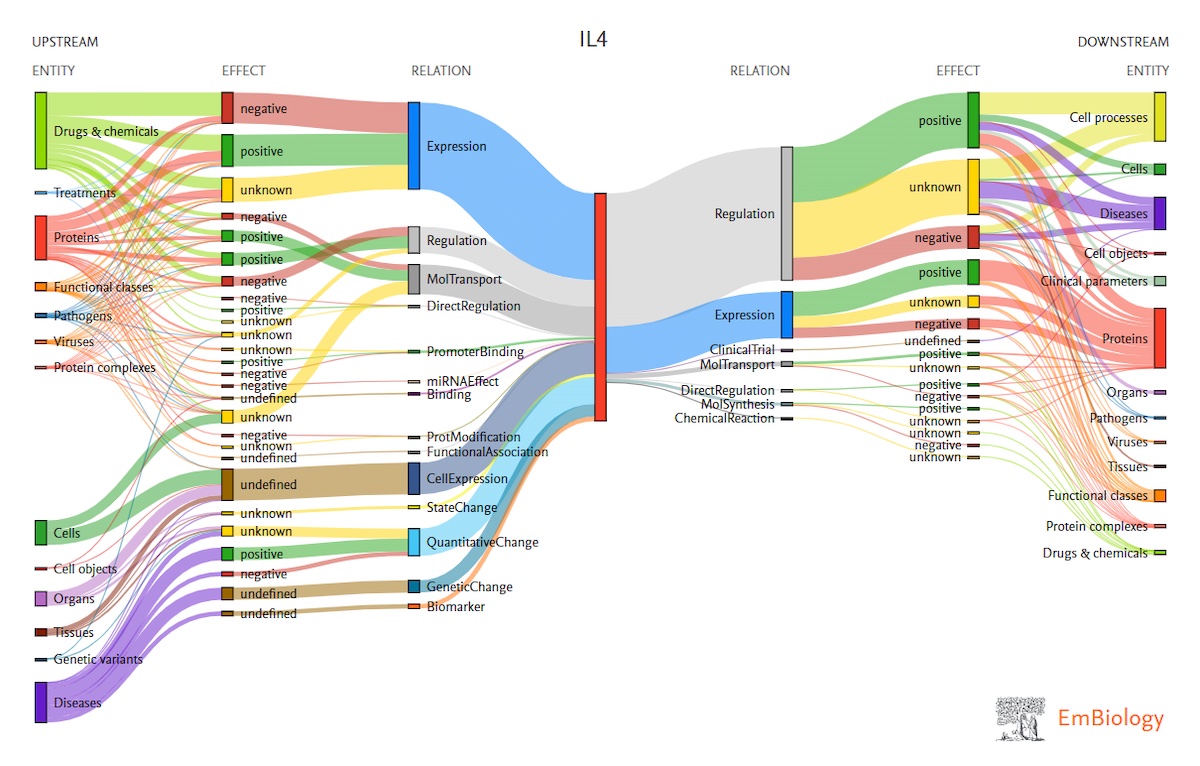Channels
Special Offers & Promotions
Elsevier launches EmBiology to deliver the unparalleled insights into biological activities that accelerate drug discovery

For more informed decisions in disease biology to bring effective therapies to the market faster
Elsevier, a leader in global information analytics, has launched EmBiology, a research tool that visualizes a comprehensive landscape of biological relationships, empowering researchers to gain a rapid understanding of disease biology and focus on critical evidence. Powered by Elsevier’s Biology Knowledge Graph, EmBiology draws on a broad and deep database of multiple sources, including over 7.2 million full text journal articles from high impact Elsevier and third-party publishers, 34.5 million abstracts and 430,000 clinical trials. Researchers working in drug discovery and development will be able to intuitively explore biological relationships and concepts to improve drug target and biomarker identification and prioritization. The depth and reliability of EmBiology’s data will enable more confident decision making about what targets to pursue and how to modulate the disease process.
“Researchers at pharmaceutical companies are faced with the monumental task to uncover insights from overwhelming amounts of information in order to identify new, more effective therapies. Intense competition demands that insights are identified quickly and confidently; researchers need to be equipped with data skills to do that,” comments Dr. Sherry Winter, Director of Biology and Biomedical Solutions at Elsevier. “EmBiology relieves this pressure by collating critical disease data into a single place and structuring it in an interactive way. This facilitates evidence-based research decisions for successful projects that ultimately bring novel treatments to patients faster.”
EmBiology surfaces relationship information, including directionality and effect, for a wide range of subject areas including expression, biomarkers, and regulation. Elsevier automates data curation with customized Machine Learning (ML) technology that transforms unstructured text into structured information. The resulting knowledge graph includes 1.4 million entities connected by 15.7 million relationships to enable deep insights from a broad range of literature, with more added weekly, so researchers can be confident they are always viewing the latest concepts and terms. Results are displayed in a Sankey diagram that visually facilitates understanding of disease development, progression, and drug responsiveness, whatever the researchers’ level of data skills. Users can also apply filters to narrow down their research question and rapidly confirm their experimental hypotheses for new drug targets, biomarkers, and drug repurposing projects.
“Elsevier has a longstanding reputation as a leader in managing and disseminating scientific information and classifying life science data,” continues Dr. Winter. “Our Biology Knowledge Graph has been developed over a period spanning more than 15 years by a team of PhD-level subject matter experts, so the insights it delivers are unparalleled. With EmBiology, we’ve taken care of the technical data side of R&D, so researchers can focus on the science.”
About Elsevier
As a global leader in information and analytics, Elsevier helps researchers and healthcare professionals advance science and improve health outcomes for the benefit of society. We do this by facilitating insights and critical decision-making for customers across the global research and health ecosystems.
In everything we publish, we uphold the highest standards of quality and integrity. We bring that same rigor to our information analytics solutions for researchers, health professionals, institutions, and funders.
Elsevier employs 8,700 people worldwide. We have supported the work of our research and health partners for more than 140 years. Growing from our roots in publishing, we offer knowledge and valuable analytics that help our users make breakthroughs and drive societal progress. Digital solutions such as ScienceDirect, Scopus, SciVal, ClinicalKey and Sherpath support strategic research management, R&D performance, clinical decision support, and health education. Researchers and healthcare professionals rely on over 2,800 digitized journals, including The Lancet and Cell; our 46,000+ eBook titles; and our iconic reference works, such as Gray's Anatomy. With the Elsevier Foundation and our external Inclusion & Diversity Advisory Board, we work in partnership with diverse stakeholders to advance inclusion and diversity in science, research and healthcare in developing countries and around the world.
Elsevier is part of RELX, a global provider of information-based analytics and decision tools for professional and business customers.
Media Partners


